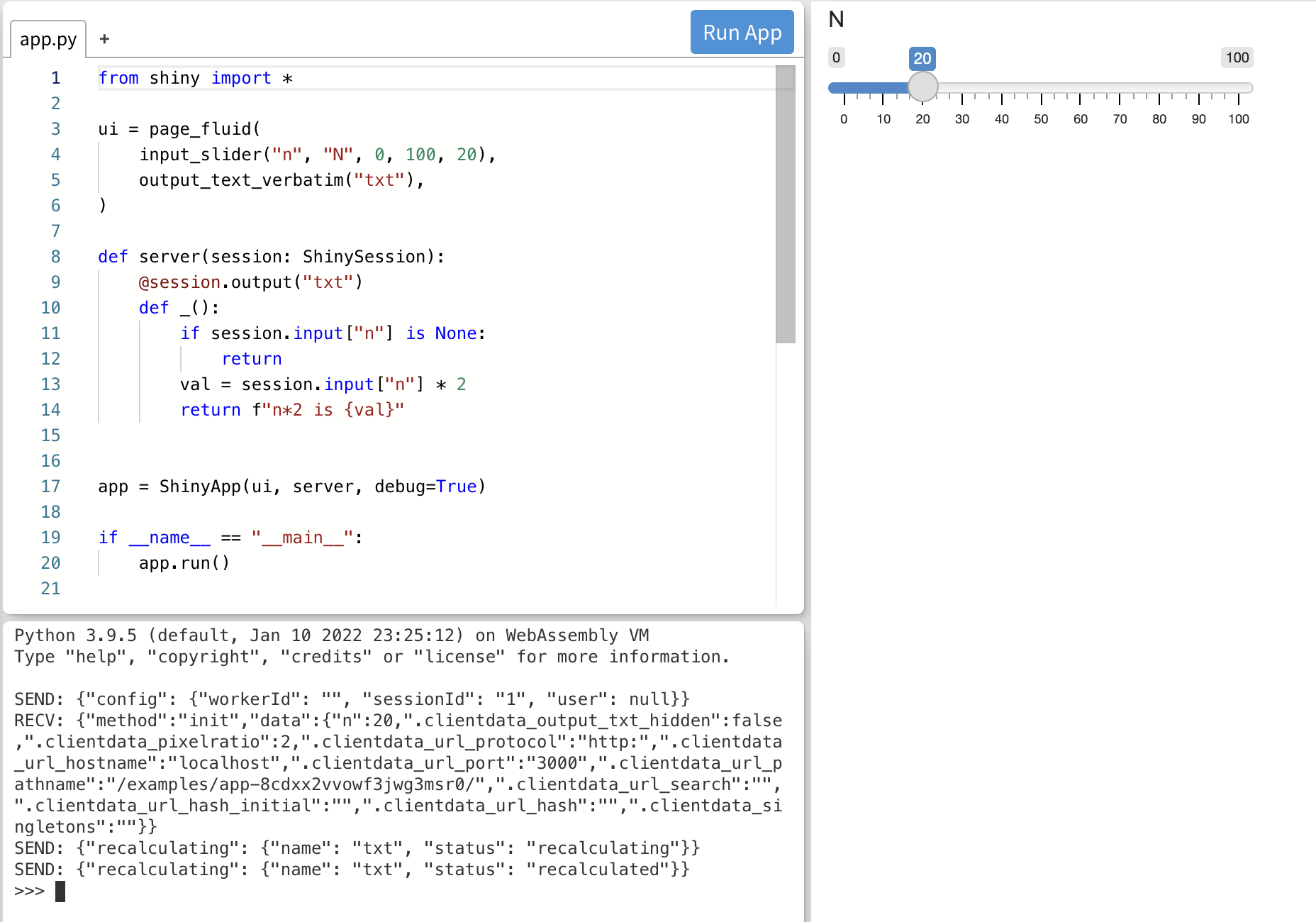Shiny for Python is the best way to build fast, beautiful web applications in Python. You can build quickly with Shiny and create simple interactive visualizations and prototype applications in an afternoon. But unlike other frameworks targeted at data scientists, Shiny does not limit your app's growth. Shiny remains extensible enough to power large, mission-critical applications.
To learn more about Shiny see the Shiny for Python website. If you're new to the framework we recommend these resources:
-
How Shiny is different from Dash and Streamlit.
-
How reactive programming can help you build better applications.
-
How to use modules to efficiently develop large applications.
-
Hosting applications for free on shinyapps.io, Hugging Face, or Shinylive.
If you have questions about Shiny for Python, or want to help us decide what to work on next, join us on Discord.
To get started with shiny follow the installation instructions or just install it from pip.
pip install shinyTo install the latest development version:
# First install htmltools, then shiny
pip install https://github.com/posit-dev/py-htmltools/tarball/main
pip install https://github.com/posit-dev/py-shiny/tarball/mainYou can create and run your first application with shiny create, the CLI will ask you which template you would like to use. You can either run the app with the Shiny extension, or call shiny run app.py --reload --launch-browser.
- Shinylive built from the
mainbranch: https://posit-dev.github.io/py-shiny/shinylive/py/examples/ - API documentation for the
mainbranch:
If you want to do development on Shiny for Python:
pip install -e ".[dev,test]"Additionally, you can install pre-commit hooks which will automatically reformat and lint the code when you make a commit:
pre-commit install
# To disable:
# pre-commit uninstall












